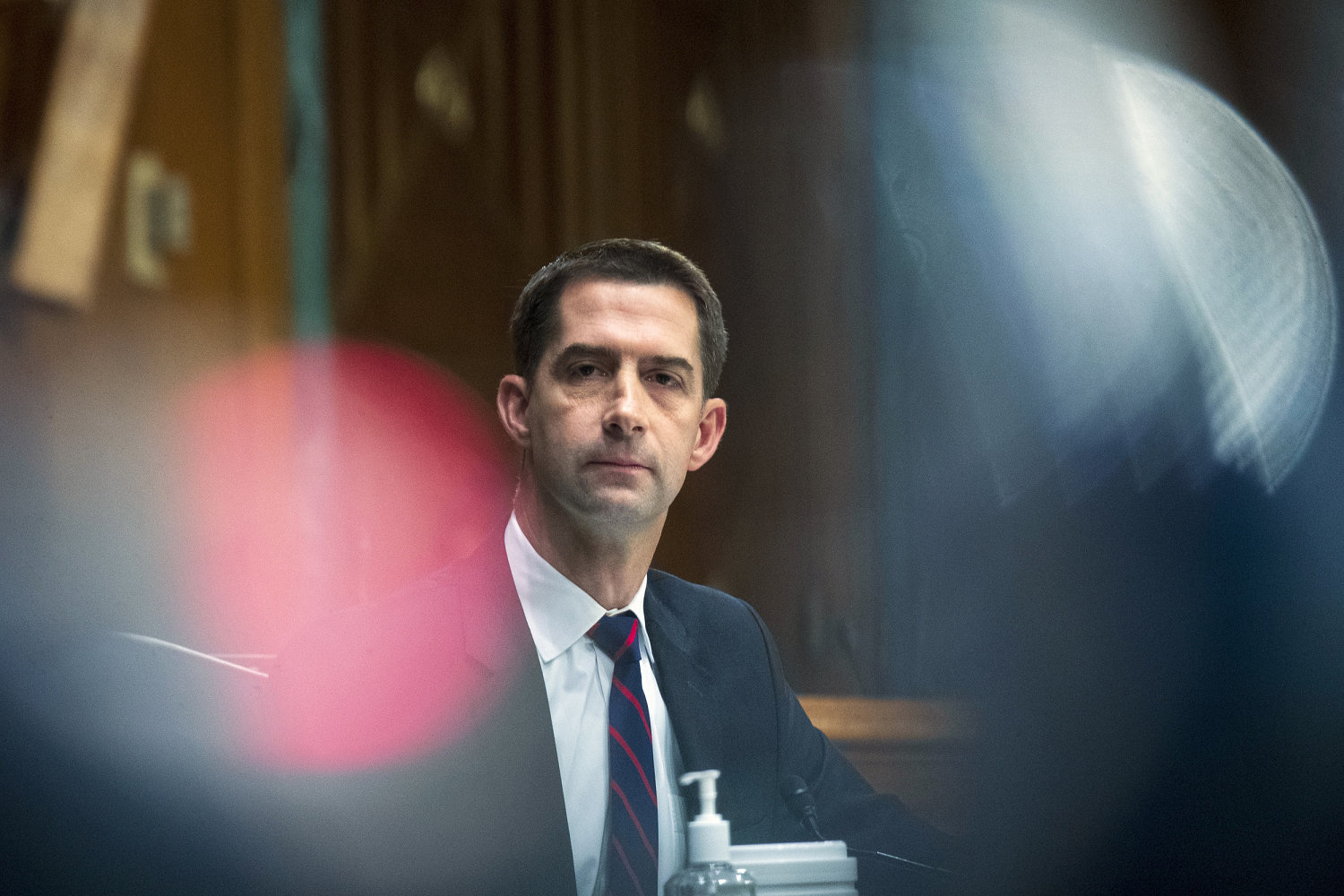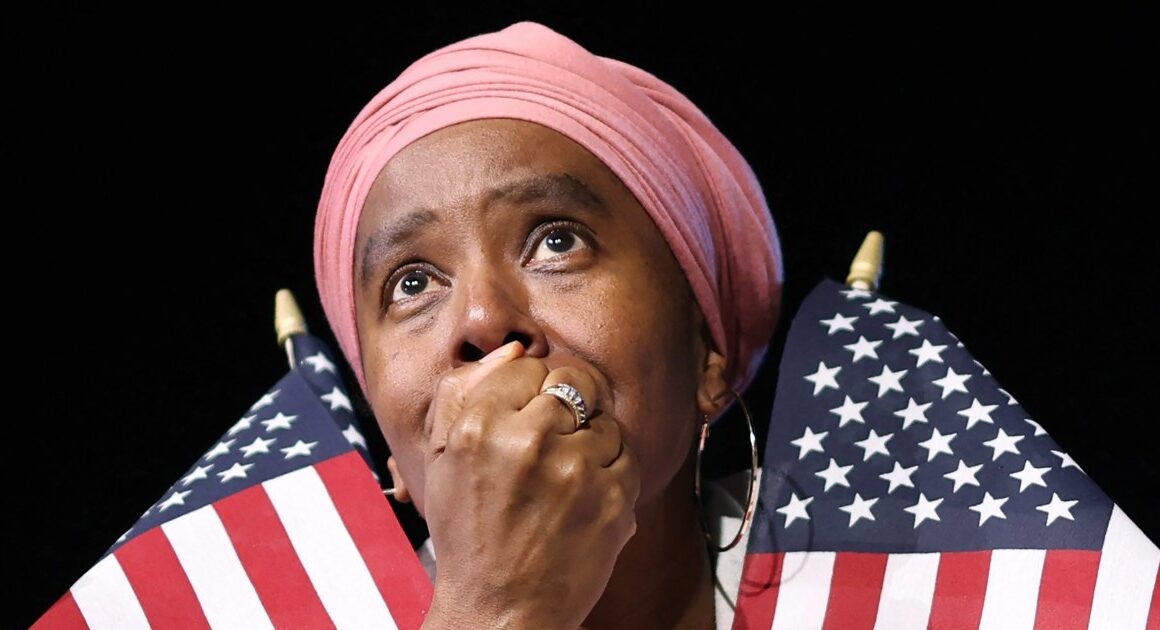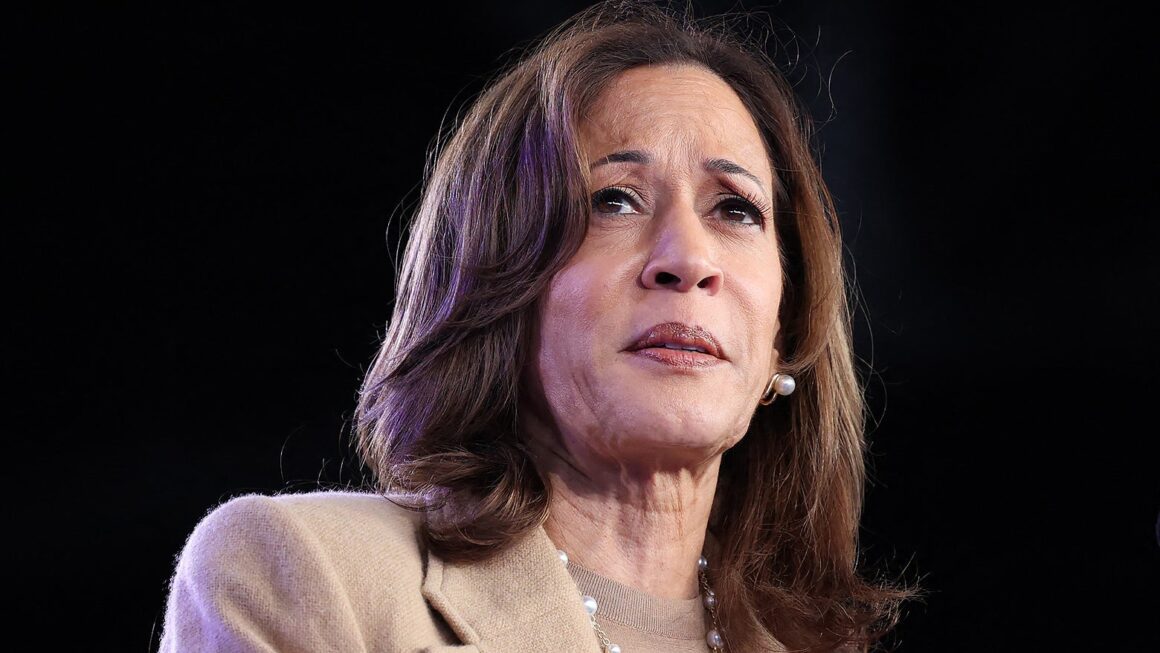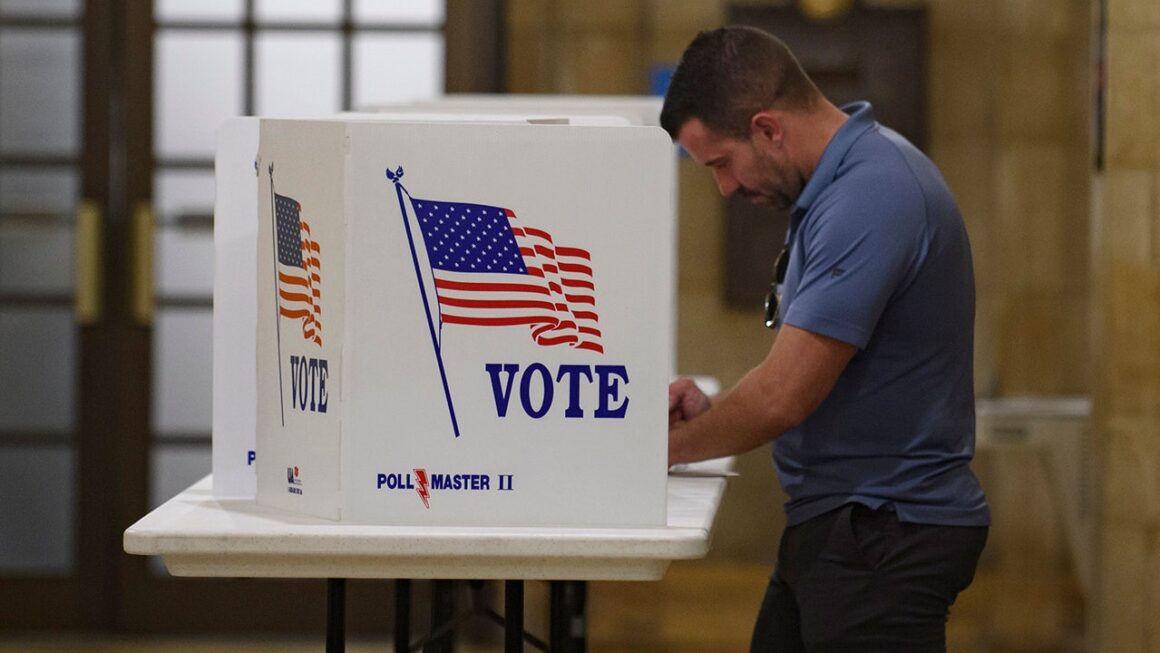
Sen. Tom Cotton, R-Ark., must have trouble tracking his views on public protest. In a 2020 New York Times op-ed, the Arkansas Republican senator called for the military to be mobilized to crush the “orgy of violence” he said was engulfing the country during the protests following George Floyd’s murder (in fact, the overwhelming majority of those protests were peaceful). Four years on, Cotton has decided that law enforcement and the military are insufficient tools to deal with protesters. It’s time to mobilize the vigilantes.
After activists campaigning for a cease-fire in Gaza blocked traffic in a number of cities Monday, Cotton tweeted, “I encourage people who get stuck behind the pro-Hamas mobs blocking traffic: take matters into your own hands to get them out of the way. It’s time to put an end to this nonsense.” He then repeated the sentiment on Fox News, adding that “if something like this happened in Arkansas on a bridge there, let’s just say, I think there would be a lot of very wet criminals that have been tossed overboard, not by law enforcement but the people whose road they’re blocking.”
If blocking traffic is bad, that should apply equally to anyone who does it, no matter what cause they’re advocating.
There’s a good case to be made that blocking traffic is a counterproductive protest tactic. Not only is it as likely to alienate people as it is to win them over, and it can go beyond a nuisance to being a genuine threat to public safety. But if blocking traffic is bad, that should apply equally to anyone who does it, no matter what cause they’re advocating. That must be what conservatives like Tom Cotton think, right?
Wrong. Cotton and other conservatives believe that public protest in general — and blocking traffic in particular — is perfectly admirable when conservatives do it, but a dire threat when liberals do it. Worse, Republicans are increasingly advocating violence as a response to liberal activism — violence committed by both the state and ordinary people.
Let’s recall what happened in February 2022, when a group of Canadian truckers angry at public health measures during the pandemic shut down traffic in much of the capital city of Ottawa and blockaded the Ambassador Bridge linking Detroit and Ontario, through which a huge proportion of the commercial traffic between the two countries flows. How did American conservatives react then?
They were positively joyous. “I’m all for it,” said Sen. Rand Paul, R-Ky. “Civil disobedience is a time-honored tradition in our country, from slavery to civil rights to you name it. Peaceful protest, clog things up, make people think about the mandates.” Fox News devoted hour after hour to celebratory coverage of the protests. The truckers “are taking a stand for freedom, human dignity and autonomy, and for liberty,” said Sean Hannity. Tucker Carlson called it “the single most important human rights protest in a generation.”
And Cotton? He criticized Canadian Prime Minister Justin Trudeau for invoking emergency powers to deal with the disruption caused by the truckers’ blockade, and Americans for supporting him. Liberals, Cotton said, “celebrated the BLM rioters in 2020 … whereas these Canadian truckers have shut down some traffic and set up bouncy houses in their capital city. The hypocrisy of these liberals knows no bounds.” It takes a hypocrite to know one, I suppose.
Trump, of course, has long made clear his belief that any liberal protest should be met with violence from both the state and ordinary people.
That celebration of disruptive protests came on the heels of a number of Republican-controlled states, including Oklahoma and Florida, passing laws that not only increased penalties for protesters who block traffic but provided civil immunity for those who drove their cars into protesters. And earlier this week, the Supreme Court left in place a lower court decision upholding three appalling laws in Louisiana, Mississippi and Texas, which make the organizer of a protest liable if anyone who attends commits an illegal act, even if the organizer had nothing to do with it. The laws might still be overturned, but in the meantime they make organizing almost any kind of public protest in those states a terrible risk.
In fact, it’s hard to find Republicans who will say loudly that in any demonstration, if protesters break the law then they ought to be stopped only by the appropriate authorities, not by vigilantes. Look at how they reacted to the case of Kyle Rittenhouse, who went to Kenosha, Wisconsin, with an AR-15 when he heard there would be an anti-police brutality protest there. After Rittenhouse fatally shot two people — later claiming he did so in self-defense — conservatives made him into a hero, complete with standing ovations at conservative conferences and an invitation to Mar-a-Lago to meet with Donald Trump. (A jury acquitted Rittenhouse of five charges, including two counts of first-degree murder, but a wrongful death suit from one of the victims’ parents is ongoing.)
Trump, of course, has long made clear his belief that any liberal protest should be met with violence from both the state and ordinary people. “If you see somebody getting ready to throw a tomato, knock the crap out of them, would you?” he told the crowd at one of his rallies, just one of many times he has said similar things. And according to his former defense secretary, when protests against police brutality grew in Washington, he asked, “Can’t you just shoot them? Just shoot them in the legs or something?” Yet he calls the insurrectionists of Jan. 6 heroes and promises to pardon them.
The prevailing belief on the right is that even nonviolent liberal protest is inherently illegitimate, and if it inconveniences you in the slightest, you should meet it with force. Faced with this advocacy for vigilantism, we have to remind ourselves that the First Amendment was never meant to be easy; you can’t say you’re an advocate of free speech if the only speech you’re willing to tolerate is your own. Yes, sometimes protests get out of control. But the answer to that is for anyone who commits a crime to be punished — not by a mob or a self-appointed crusader wielding his car as a weapon, but by our legal system. If we abandon that, the fallout will be far worse than being stuck in traffic.
![]()







